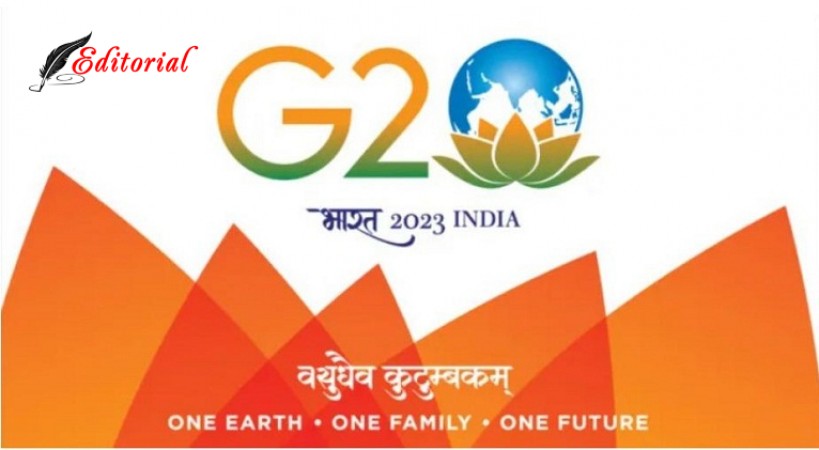
The recent deliberations led by the Trade and Investment Ministers of the G-20 nations marked a significant event in the global economic landscape. Representing a staggering 80% of the world economy's output, three-quarters of global trade flows, and three-fifths of the global population, the G-20 nations convened under the leadership of India's presidency. However, the meeting did not culminate in a comprehensive communiqué due to China and Russia's opposition, who blocked any reference to geopolitical implications arising from the ongoing conflict in Ukraine. This obstruction mirrors a recurring pattern observed since the G-20 Bali summit held the previous year.
Despite these challenges, amid the prevailing uncertainties surrounding international trade and investment in the short term, the G-20 nations did manage to find common ground. They agreed to collaborate on joint measures aimed at reaffirming global trust in cross-border trade and investment flows as catalysts for shared prosperity and overall growth. The outcomes of the discussions resulted in five discernible and action-driven initiatives. These included fostering a dialogue on global standards to bridge regulatory discrepancies across different countries. Additionally, the ministers focused on developing a comprehensive compilation of best practices for mutual recognition of qualifications pertinent to professional services such as medicine, law, and nursing.
Significantly, Commerce and Industry Minister Piyush Goyal underscored that the achievements in the realm of trade were the most momentous thus far in the series of G-20 dialogues. He emphasized that the remaining three initiatives introduced novel elements that held strategic importance for India. One such proposal entailed creating a generic framework to chart global value chains—a concept aimed at identifying vulnerable links and preemptively addressing disruptions akin to those experienced during the pandemic. While promising, the feasibility of executing this concept poses potential challenges.
Another noteworthy step involved the digitalization of trade-related documents to streamline the movement of goods and services across borders. Although this move is commendable, it's essential to recognize that the principles outlined in this agreement pertain primarily to documentation relevant to transactions, such as transportation, insurance, and storage. The scope of these principles might not necessarily extend to governmental paperwork required for cross-border trade processes.
One of the most consequential aspects arising from the meeting is what has been dubbed the 'Jaipur Call for Action to enhance Micro, Small, and Medium Enterprises' (MSMEs) access to information.' This initiative holds the promise of yielding swift and tangible results. The International Trade Centre, in collaboration with the World Trade Organization (WTO) and the United Nations Conference on Trade and Development (UNCTAD), which operate the Global Trade Helpdesk, has been urged to collaborate with G-20 member nations. The goal is to enhance the functionality of their data portal for businesses and address the persistent "information asymmetry" that often impedes the progress of small-scale players in the global economic landscape.
This effort closely aligns with Prime Minister Narendra Modi's call for G-20 Ministers to proactively assist MSMEs in integrating with global value chains. These enterprises play a pivotal role in the employment sector, accounting for 60%-70% of jobs and contributing to 50% of the global GDP. Empowering these businesses translates to broader societal empowerment—a sentiment echoed by Prime Minister Modi. In light of this, India must also introspect and adopt measures to fortify the capabilities of its own small-scale enterprises. Notably, the proposal to encourage greenfield investments through incentives tied to productivity, which spans various sectors, could be modified to create a specialized avenue for new outlays by MSMEs that might not meet the criteria for larger-scale investment incentives.
Furthermore, while bureaucratic hurdles may have transformed into facilitative measures for prominent investors, the same transformation has not been realized for smaller businesses. Initiating and sustaining projects for these entities remains a formidable challenge. Hence, as the G-20 meeting's outcomes are absorbed and implemented, it is imperative for India and other member nations to recognize the distinct role and needs of MSMEs in shaping the global economic landscape. This recognition should manifest not merely in policy discussions but also in concrete measures that uplift and enable these smaller players to contribute substantially to the world economy.